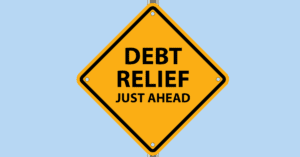Holiday Debt Relief Guide
As the festive lights dim and the holiday cheer fades, many Canadians will find themselves facing a less joyful aftermath: mounting holiday debt. I’m here, not just as a licensed insolvency trustee but as your guide through this financial maze. In this article, we’ll explore practical, proven strategies for tackling holiday debt, from consolidation to bankruptcy, and how to prevent this cycle next year. Let’s turn that financial stress into a plan of action, shall we?
Understanding Holiday Debt in Canada
The holiday season, while full of joy and celebration, often brings with it a surge in spending. In Canada, it’s not uncommon for households to stretch their budgets to the breaking point to accommodate holiday expenses. But what happens when the bills start rolling in, and the realization hits that the festive splurge has led to a daunting pile of debt?
Early Signs of Financial Strain Post-Holidays
Recognizing early signs of financial trouble is crucial. Are you finding it difficult to meet minimum payments? Is your credit card balance refusing to budge? These are red flags. Ignoring them can lead to more severe consequences down the line, including damaged credit scores and unmanageable debt levels.
Holiday Debt Relief Available in Canada
Fortunately, there are several avenues available for Canadians to manage and overcome holiday debt.
Debt Consolidation Loans: This option involves taking out a new loan to pay off multiple debts. It can simplify your payments and potentially lower your interest rates.
Credit Counseling Services: Credit counselors can provide valuable advice on managing your debt and might help negotiate with creditors.
Debt Management Plans: These plans involve working with a credit counseling agency to pay off your debt through a payment plan.
Consumer Proposals: As a licensed insolvency trustee, I often recommend consumer proposals. This legal process allows you to pay back a portion of your debt, with the balance forgiven by your creditors.
Bankruptcy: While often seen as a last resort, bankruptcy can offer a fresh start for those overwhelmed by debt.
Consumer Proposals: A Closer Look
A consumer proposal is a powerful tool. It allows you to keep your assets while paying off a portion of your debt. The process involves a lisenced insolvency trustee who negotiates with your creditors to settle on an amount that you can afford, and once agreed upon, your debts are consolidated into one monthly payment.
Bankruptcy: When and Why It Might Be Necessary
Bankruptcy is often misunderstood. It’s not a sign of failure but a legal means to gain relief from insurmountable debt. In Canada, filing for bankruptcy can provide a clean slate, but it’s important to understand the implications, including its impact on your credit score and assets.
Practical Tips for Managing and Avoiding Holiday Debt
Prevention is better than cure. Setting a realistic holiday budget and sticking to it is key. Also, consider starting a holiday savings fund early in the year. This proactive approach can significantly reduce the need for credit during the festive season.
Seeking Professional Help for Holiday Debt
If you’re feeling overwhelmed by holiday debt, it’s time to talk to a professional. Licensed insolvency trustees like myself are equipped to assess your financial situation and guide you towards the best course of action.
Conclusion
Holiday debt doesn’t have to be a recurring nightmare. With the right strategies and professional guidance, you can overcome financial hurdles and even prevent them in the future. Remember, taking the first step towards addressing your debt is often the most crucial.
Call to Action
If you’re struggling with post-holiday debt, don’t hesitate to reach out. As a licensed insolvency trustee, I’m here to help you navigate these challenges and find a solution that works for you. Contact me for a consultation, and let’s start your journey towards financial freedom today.




